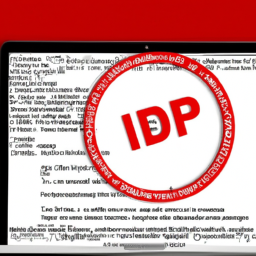Are you tired of losing your valuable data due to backup and restore failures? Look no further! Hosting providers are here to save the day and ensure your precious information remains intact.
In this article, we will delve into the crucial role hosting providers play in preventing backup and restore failures.
Imagine a world where your data disappears into the abyss, never to be seen again. It’s a nightmare, right? Well, hosting providers have made it their mission to make sure this never happens to you. With their robust infrastructure and advanced technologies, they offer secure data storage that can withstand even the most catastrophic events.
But it doesn’t stop there. Hosting providers also provide expert support and proactive maintenance to nip failures in the bud. They implement redundancy and disaster recovery measures to ensure your data is always protected, no matter what.
Regular monitoring and testing of backup and restore systems are also part of their repertoire. They leave no stone unturned in their quest to keep your data safe and sound.
And let’s not forget about compliance with data protection regulations and industry standards. Hosting providers take this seriously, ensuring your data remains in line with the highest security protocols.
So, sit back, relax, and let hosting providers take care of your backup and restore needs. With their expertise and dedication, you can bid farewell to those sleepless nights worrying about data loss.
Key Takeaways
- Hosting providers offer secure data storage and implement redundancy and disaster recovery measures.
- Regular monitoring and testing of backup and restore systems is crucial to prevent failures.
- Compliance with data protection regulations and industry standards is vital for hosting providers.
- Expert support and proactive maintenance ensure uninterrupted availability of data.
Understanding the Importance of Data Backup and Restore Processes
You need to understand the importance of data backup and restore processes because they’re crucial for protecting your valuable information.
Data loss prevention is a top priority for any business or individual who relies on digital data. Without proper backup and restore processes in place, you run the risk of permanently losing important files, documents, and sensitive information.
A data breach or system failure could occur at any time, but with the right data recovery strategies, you can minimize the impact and quickly restore your data.
It’s essential to have a robust infrastructure and advanced technologies for secure data storage. These components will ensure that your data is protected, accessible, and recoverable when needed.
Robust Infrastructure and Advanced Technologies for Secure Data Storage
With a sturdy infrastructure and cutting-edge technologies, hosting providers ensure the secure storage of data. They employ secure data transmission protocols to protect sensitive information while it’s being transferred to their servers.
Additionally, they utilize advanced data encryption techniques to safeguard data at rest. Hosting providers implement stringent security measures, such as firewalls and intrusion detection systems, to prevent unauthorized access to the stored data. They continuously monitor and update their systems to stay ahead of potential security threats.
These robust security measures instill confidence in customers that their data is well-protected.
In the subsequent section about expert support and proactive maintenance to prevent failures, hosting providers go beyond secure storage to ensure the overall reliability and integrity of data.
Expert Support and Proactive Maintenance to Prevent Failures
By providing expert support and proactive maintenance, hosting providers ensure the seamless functioning and uninterrupted availability of your data storage. They prioritize customer satisfaction by offering proactive troubleshooting to identify and resolve any potential issues before they escalate. This approach minimizes downtime and ensures that your data is always accessible.
Here are four ways hosting providers employ expert support and proactive maintenance:
-
Regular system updates and patches: Hosting providers constantly monitor and update their infrastructure to address any security vulnerabilities and ensure optimal performance.
-
24/7 monitoring and response: Hosting providers employ dedicated teams to monitor server activity, promptly identify any anomalies, and take immediate action to prevent failures.
-
Performance optimization: Hosting providers analyze server performance metrics to identify bottlenecks and optimize resources, ensuring consistent and efficient data storage.
-
Proactive communication: Hosting providers keep customers informed about any maintenance or updates, ensuring transparency and minimizing disruptions.
With these measures in place, hosting providers lay the foundation for implementing redundancy and disaster recovery measures, ensuring the utmost protection for your data.
Implementing Redundancy and Disaster Recovery Measures
To ensure the utmost protection for your data, it is essential to implement redundancy and disaster recovery measures.
Redundancy implementation involves creating duplicate copies of your data and storing them in multiple locations. This way, if one location fails, your data is still accessible from another location. Hosting providers play a crucial role in setting up and maintaining these redundant systems. They ensure that your data is continuously replicated and synchronized across multiple servers or data centers.
Disaster recovery measures, on the other hand, focus on creating a plan to restore data in the event of a catastrophic event. This plan includes regular backups, testing the restoration process, and having a strategy for recovering data quickly. By implementing redundancy and disaster recovery measures, hosting providers minimize the risk of data loss and ensure the availability of your data even in the face of unexpected events.
Moving on to regular monitoring and testing of backup and restore systems…
Regular Monitoring and Testing of Backup and Restore Systems
Make sure you keep a close eye on and regularly test your backup and restore systems, just like you would regularly check your car’s brakes to ensure they are in good working order. Continuous improvement is essential in maintaining the integrity and reliability of your backup and restore systems. By regularly monitoring and testing these systems, you can identify any potential issues or vulnerabilities before they become major problems. This allows you to make necessary adjustments and improvements to ensure optimal performance and data recovery planning. Regular testing also helps in identifying any gaps in your backup and restore processes, enabling you to address them and enhance your overall data protection strategy.
To emphasize the importance of regular monitoring and testing, consider the following table:
| Benefits of Regular Monitoring and Testing |
|---|
| Early detection of issues or vulnerabilities |
| Identification of gaps in backup processes |
| Improvement of data recovery planning |
Incorporating these practices into your backup and restore strategy ensures that your systems are always up to date and capable of effectively restoring your data when needed. Moving forward, it is crucial to also consider compliance with data protection regulations and industry standards.
Compliance with Data Protection Regulations and Industry Standards
Ensuring compliance with data protection regulations and industry standards is vital for maintaining the integrity and reliability of your backup and restore systems. Failing to adhere to these regulations and standards can have severe consequences, including data breaches and legal implications.
To prevent such failures, hosting providers must prioritize compliance by implementing robust security measures and regularly auditing their systems.
To ensure compliance, hosting providers should:
- Conduct regular risk assessments to identify potential vulnerabilities and address them promptly.
- Implement encryption protocols to protect sensitive data from unauthorized access.
- Train staff members on data protection policies and procedures to ensure proper handling of sensitive information.
- Regularly monitor and test backup and restore systems to identify any weaknesses or vulnerabilities.
- Stay up to date with the latest data protection regulations and industry standards to adapt their systems accordingly.
By following these guidelines, hosting providers can minimize the risk of backup and restore failures, protecting their clients’ data and avoiding potentially devastating consequences.
Frequently Asked Questions
What are the common causes of backup and restore failures that hosting providers need to address?
Common challenges in backup and restore failures that hosting providers need to address include hardware failures, software glitches, human error, and network issues.
To overcome these challenges, hosting providers should implement best practices such as regular backups, redundant storage systems, automated backup verification, and monitoring tools to detect any failures.
It’s crucial for hosting providers to prioritize these practices to ensure the smooth functioning of backup and restore processes and minimize potential data loss.
How do hosting providers ensure the security of data during the backup and restore processes?
Did you know that 60% of data breaches occur due to inadequate data protection during backup and restore processes?
Hosting providers play a crucial role in ensuring the security of your data. They employ robust encryption techniques to safeguard your information, making it virtually impossible for hackers to access.
Additionally, hosting providers implement data redundancy measures, creating multiple copies of your data to prevent loss or corruption.
These practices ensure the highest level of data security during backup and restore processes.
Can hosting providers guarantee the successful restoration of data in case of a failure?
Hosting providers have a crucial responsibility in guaranteeing the successful restoration of data in case of a failure. They must ensure that proper backup systems and processes are in place to minimize the risk of data loss.
This includes regular backups, secure storage, and efficient restore procedures. Hosting providers should also regularly test their backup and restore processes to identify any potential issues and address them promptly.
By fulfilling these responsibilities, hosting providers can instill confidence in their clients that their data can be successfully restored if needed.
What measures do hosting providers take to prevent data loss or corruption during the backup and restore processes?
Hosting providers take several measures to prevent data loss or corruption during the backup and restore processes. They utilize advanced backup technologies like redundancy, which involves creating multiple copies of data to ensure its safety.
Additionally, hosting providers regularly test their backup and restore systems to identify any vulnerabilities or errors. They also implement robust security measures, such as encryption and access controls, to protect data during transit and storage.
These measures help to minimize the risk of data loss and ensure the successful restoration of data in case of a failure.
What steps do hosting providers take to ensure the integrity and reliability of backup and restore systems over time?
To ensure the integrity and reliability of backup and restore systems over time, hosting providers implement a range of measures.
They continuously monitor and update their data protection protocols, employing the latest technologies and techniques to safeguard against potential failures.
Additionally, hosting providers regularly evaluate and enhance their backup systems, identifying areas for improvement and implementing necessary changes.
By prioritizing the ongoing improvement of backup systems, hosting providers can effectively protect and preserve data for their clients.
Conclusion
In conclusion, hosting providers play a crucial role in preventing backup and restore failures. They offer secure data storage solutions with their robust infrastructure and advanced technologies. Their expert support and proactive maintenance ensure that potential failures are anticipated and prevented. Implementing redundancy and disaster recovery measures adds an extra layer of protection.
Regular monitoring and testing of backup and restore systems ensure their reliability. By complying with data protection regulations and industry standards, hosting providers ensure that your data is safe and sound. It’s like having a safety net for your valuable information, giving you peace of mind.















































































































